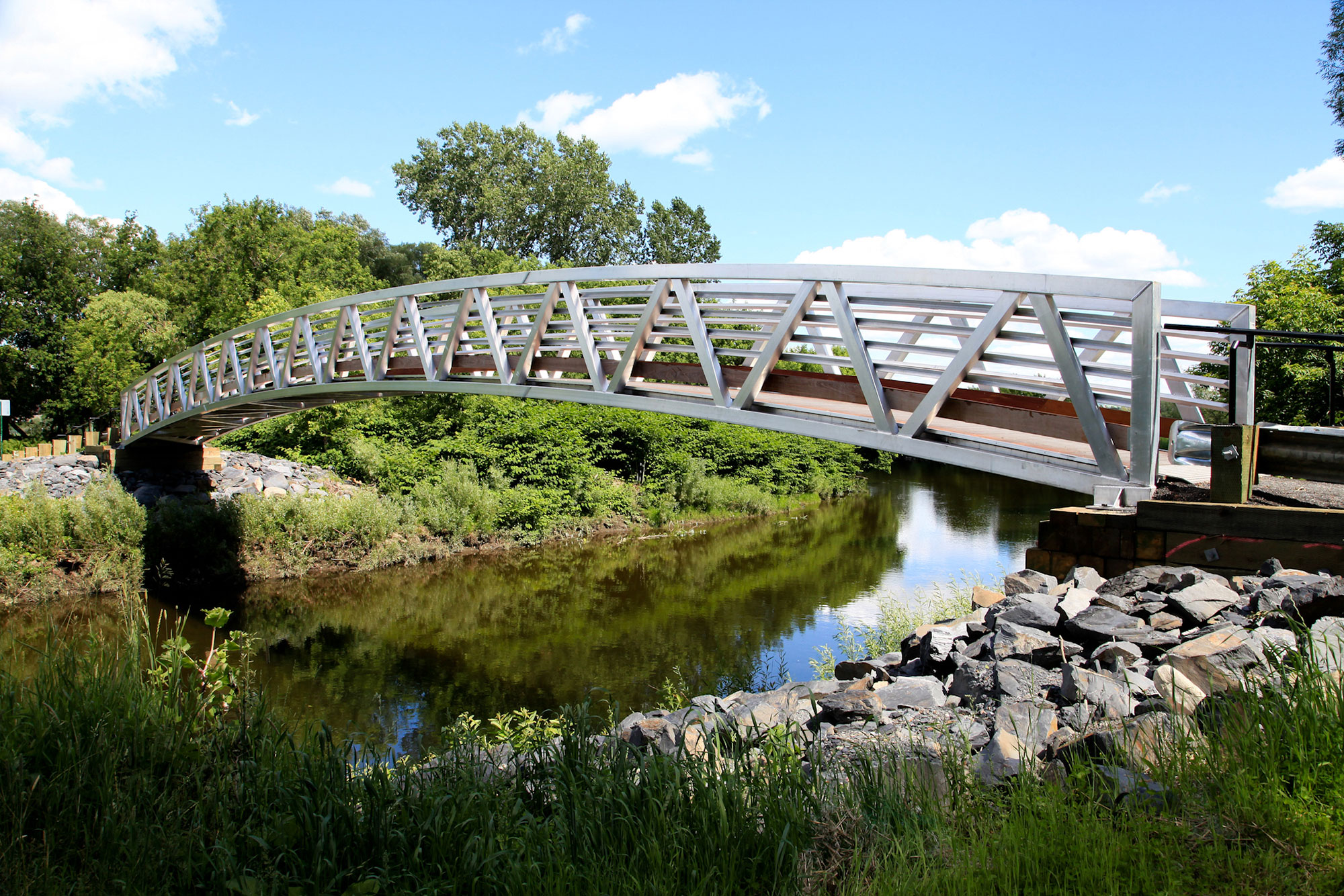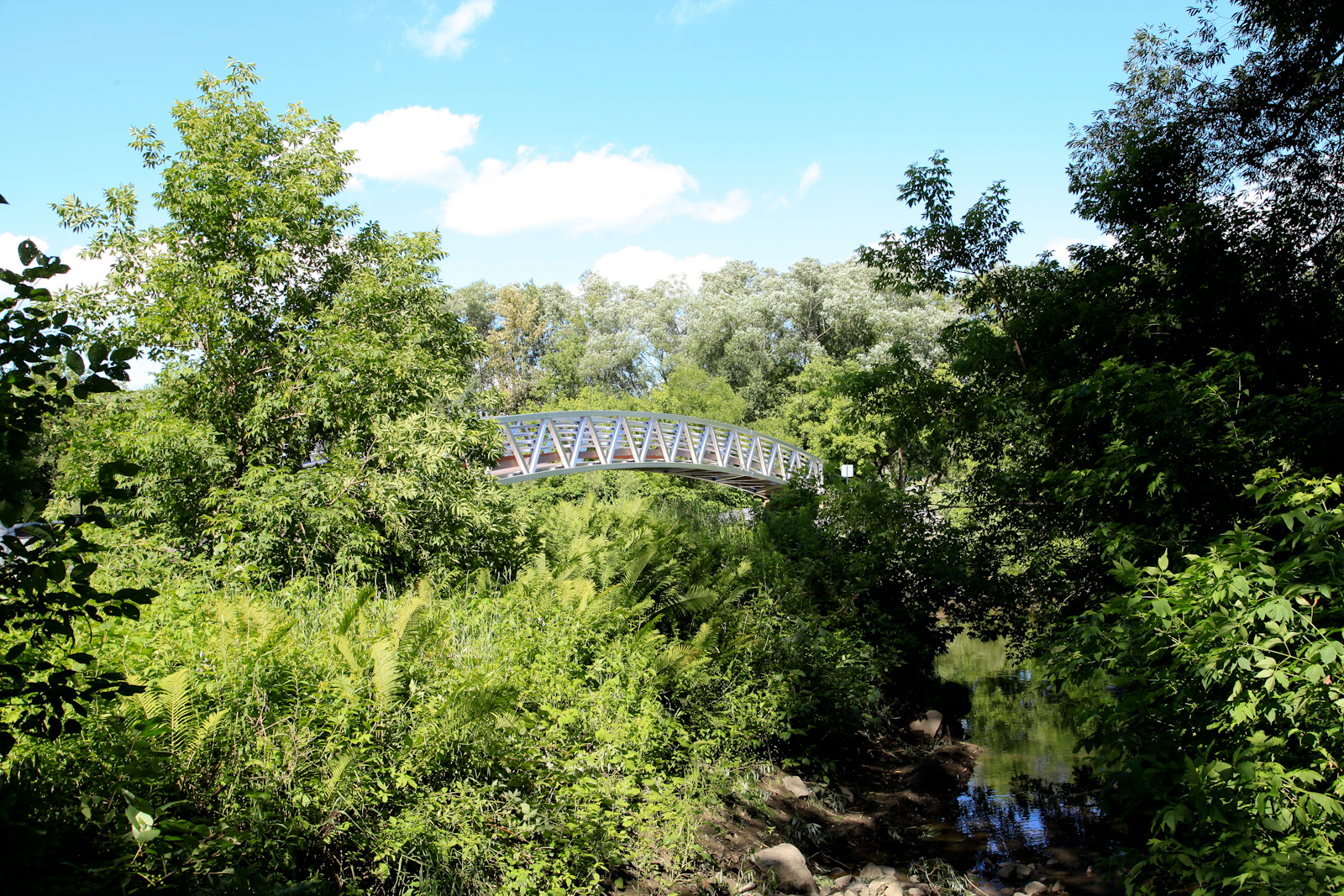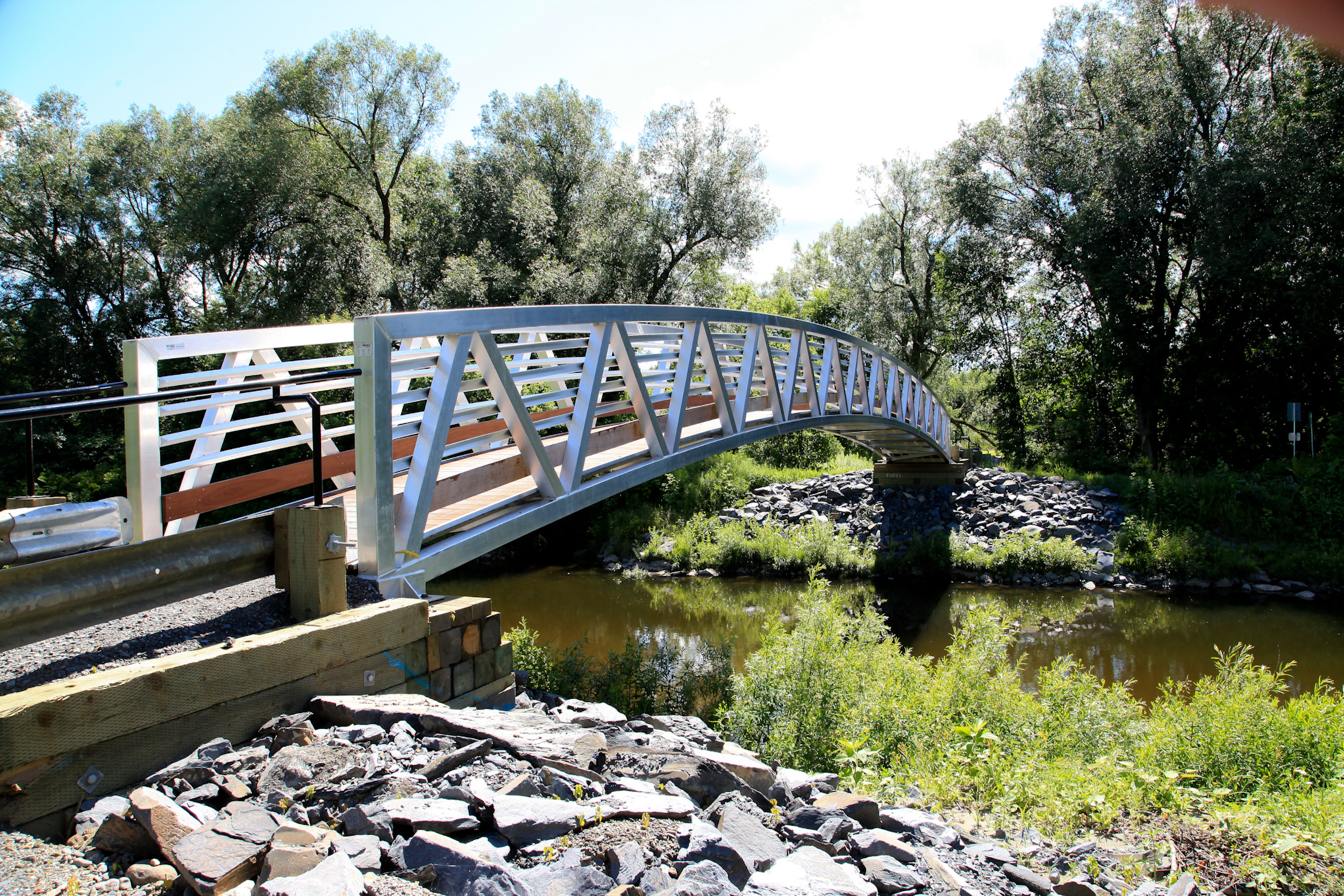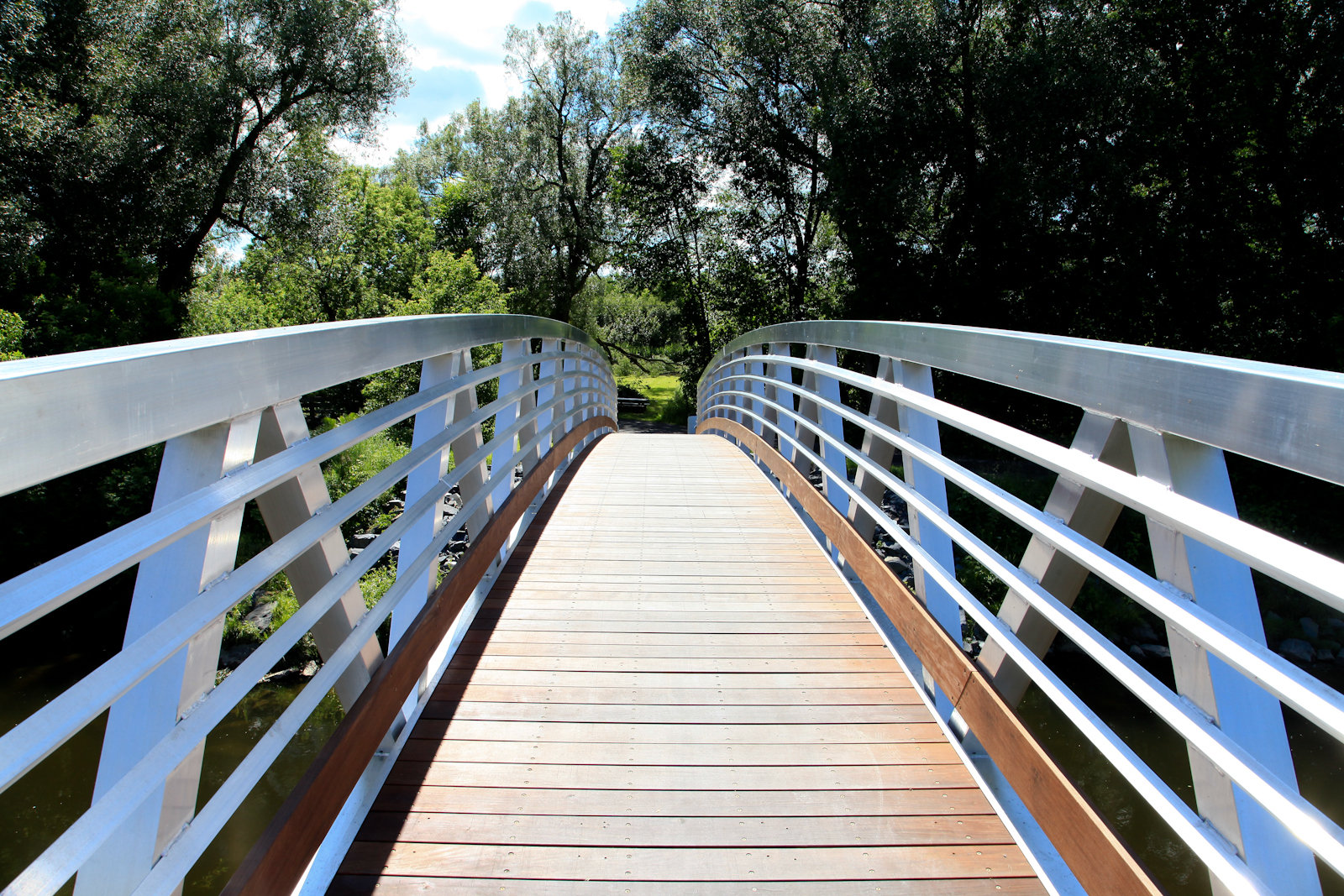The MAADI Group engineering firm, Montréal, Québec, has installed a new aluminum arched pony-truss bridge in the scenic town of Coaticook, Québec, Canada.
January 21, 2014—MONTREAL, CANADA – The strong, lightweight snowmobile bridge length is 29.0 meters (95ft., 2in.), constructed with maintenance-free welded aluminum pony truss structure framework and side guardrails. The pedestrian bridge spans the Coaticook River, replacing an older bridge that was destroyed by floating trees during flooding in 2011. The new bridge connects more than 185 kilometers (115 miles) of trails, serving as a pedestrian bridge for snowmobiling, hiking/biking and cross-country skiing.
A custom flat-bed trailer with a remote-control steering dolly was used to transport the pre-assembled bridge on its two-and-a-half-hour journey from the manufacturing facility to the installation site. The bridge’s arch clears the top of the abutment by 1.2 meters (4 ft.), and has a clear width of 1.8 meters (6 ft.). The tropical Ipe hardwood decking naturally resists decay and weathering (known as Ironwood™), and allows skiers and snowmobiles to safely cross the bridge without slipping or skidding. The wooden decking comprises 45 percent of total bridge weight and integrates well with the mill finish aluminum structural components. Horizontal aluminum guardrails have clear openings between elements such that a 150 mm (6 in) sphere shall not pass through, per Canadian bridge codes.
The aluminum bridge’s arched-rail architectural design blends aesthetically with its natural surroundings, and provides durable functionality. The bridge is designed to handle single-file snowmobiles that, fully loaded, weigh approximately 455 kilograms (1,000 pounds) each. The bridge’s overall height of 2.95 meters (9 ft., 8 in.), when combined with the 915mm-high (3-foot) trailer, comprised a 3.86-meter (12 ft., 8 in..) trailered bridge that was able to clear the 4.11 meter (13 ft., 6 in.) standard height overpass structures encountered during transport and was able to navigate smoothly around some very tight turns en route!
The snowmobile bridge was installed by four workmen and one crane operator in just four hours on December 12,2013 using a 120-ton capacity crane. The recreational bridge weighs 7,360 kilograms (16,200 pounds), with a distributed load capacity of 4.0 kPA (85 psf), concentrated load capacity of 4.5 kN (1000 lb), and service vehicle capacity of up to 1000kg (2,240 lb), with a lateral wind charge of 400 Pa (10 psf).
President of MAADI Group, Inc., Alexandre de la Chevrotière, P.E., notes, “The aluminum bridge structure is entirely corrosion-free and maintenance-free, eliminating the need for expensive galvanizing or painting of steel due to rust. Aluminum endures the harshest climate conditions including ice, snow, frigid temperatures, salt, and chemicals. Unlike steel, after decades of use, aluminum is fully recyclable with very high scrap value, and retains its strength properties when reused,” he concludes, “These benefits, along with efficient transport and fast installation make this type of aluminum bridge structure an extremely cost-effective and sustainable alternative to steel.”
“Aluminum’s ability to integrate with the bridge’s truss and railing structures with Ironwood™ decking enabled us to create a bridge that perfectly meets the needs of Coaticook’s recreational activities, linking all of their snowmobiling, hiking and cross-country skiing trails. MAADI Group wishes to express our thanks to Réjean Carrière and le Club Motoneige Étoile de l’Est, which maintains the many miles of Coaticook trails for recreational use, and the Québec Federation of Snowmobile Clubs for its program that supported this Club infrastructure project. Our thanks to Tom Cournoyer, P.E., with the Larocque Groupe, who made the abutments for our snowmobile bridge,” said de la Chevrotière, “and we especially thank the Town of Coaticook and all those who transported and worked on this bridge. Winter sports enthusiasts will have a safe and reliable way to enjoy the beautiful trails of Coaticook, the “River of the Land of Pine Trees” for many years to come.”




